Related Research Articles
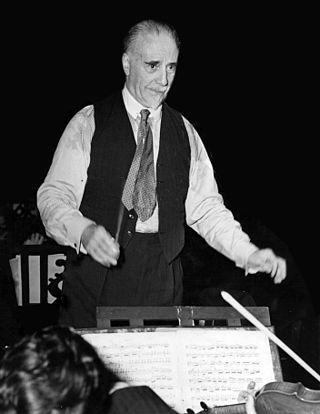
Sir Thomas Beecham, 2nd Baronet, CH was an English conductor and impresario best known for his association with the London Philharmonic and the Royal Philharmonic orchestras. He was also closely associated with the Liverpool Philharmonic and Hallé orchestras. From the early 20th century until his death, Beecham was a major influence on the musical life of Britain and, according to the BBC, was Britain's first international conductor.

The Boston Symphony Orchestra (BSO) is an American orchestra based in Boston. It is the second-oldest of the five major American symphony orchestras commonly referred to as the "Big Five". Founded by Henry Lee Higginson in 1881, the BSO performs most of its concerts at Boston's Symphony Hall and in the summer performs at Tanglewood.
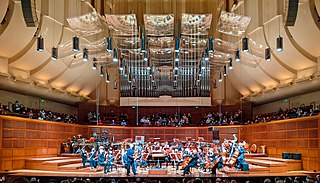
The San Francisco Symphony, founded in 1911, is an American orchestra based in San Francisco, California. Since 1980 the orchestra has been resident at the Louise M. Davies Symphony Hall in the city's Hayes Valley neighborhood. The San Francisco Symphony Youth Orchestra and the San Francisco Symphony Chorus (1972) are part of the organization. Michael Tilson Thomas became the orchestra's music director in 1995, and concluded his tenure in 2020 when Esa-Pekka Salonen took over the position.
The BBC Symphony Orchestra is a British orchestra based in London. Founded in 1930, it was the first permanent salaried orchestra in London, and is the only one of the city's five major symphony orchestras not to be self-governing. The BBC SO is the principal broadcast orchestra of the British Broadcasting Corporation (BBC).

The London Symphony Orchestra (LSO) is a British symphony orchestra based in London. Founded in 1904, the LSO is the oldest of London's symphony orchestras. The LSO was created by a group of players who left Henry Wood's Queen's Hall Orchestra because of a new rule requiring players to give the orchestra their exclusive services. The LSO itself later introduced a similar rule for its members. From the outset the LSO was organised on co-operative lines, with all players sharing the profits at the end of each season. This practice continued for the orchestra's first four decades.
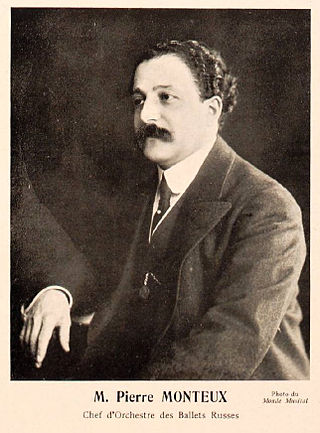
Pierre Benjamin Monteux was a French conductor. After violin and viola studies, and a decade as an orchestral player and occasional conductor, he began to receive regular conducting engagements in 1907. He came to prominence when, for Sergei Diaghilev's Ballets Russes company between 1911 and 1914, he conducted the world premieres of Stravinsky's The Rite of Spring and other prominent works including Petrushka, The Nightingale, Ravel's Daphnis et Chloé, and Debussy's Jeux. Thereafter he directed orchestras around the world for more than half a century.

Serge Koussevitzky was a Russian and American conductor, composer, and double-bassist, known for his long tenure as music director of the Boston Symphony Orchestra from 1924 to 1949.

Charles Munch was an Alsatian French symphonic conductor and violinist. Noted for his mastery of the French orchestral repertoire, he was best known as music director of the Boston Symphony Orchestra.
The Bergen Philharmonic Orchestra is a Norwegian orchestra based in Bergen. Its principal concert venue is the Grieg Hall.

The Rochester Philharmonic Orchestra (RPO) is an American orchestra based in the city of Rochester, New York. Its primary concert venue is the Eastman Theatre at the Eastman School of Music.
Theodore Robert Bloomfield was an American conductor.
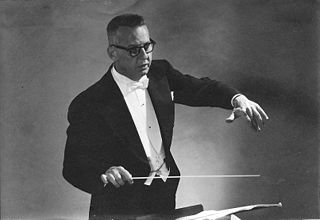
James W. Sample was an American conductor.
Richard Burgin was a Polish-American violinist, best known as associate conductor and the concertmaster of the Boston Symphony Orchestra (BSO).
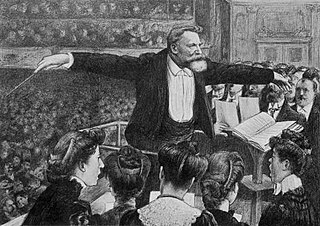
The Colonne Orchestra is a French symphony orchestra, founded in 1873 by the violinist and conductor Édouard Colonne.
William Mayer was an American composer, best known for his prize-winning opera A Death in the Family.
The Hudson Valley Philharmonic is a symphony orchestra based in Poughkeepsie, New York in the United States. It began in 1932, and it serves the Hudson Valley region.
The Orchestra Symphonique de Paris was an orchestra principally active in Paris from 1928 to 1939. The orchestra was co-founded by Ernest Ansermet, Louis Fourestier and Alfred Cortot and gave its first concert on 19 October 1928 at the Théâtre des Champs-Élysées.
Emanuel Leplin was a composer, conductor, and painter active mainly in the second half of the 20th century. He was born in San Francisco, and joined the San Francisco Symphony as a violist in 1941, conducting it in two of his own works, in 1941 and 1947. In 1954, he contracted polio, and afterward, was unable to hold a brush or compose using anything below his neck but the first three fingers of his right hand. With these fingers he composed three symphonies, a violin concerto, and many other works for orchestra and chamber groups.
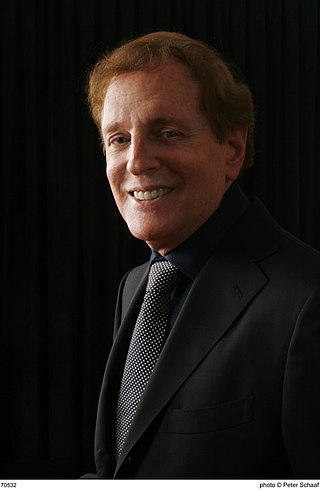
Steven Richman is a GRAMMY Award-nominated American conductor and writer. He is music director of Harmonie Ensemble/New York, which he founded in 1979, and the Dvořák Festival Orchestra of New York.

The Greeting Prelude is an orchestral work composed in 1955 by Igor Stravinsky. Its origins can be traced back to an incident that occurred during a rehearsal at the inaugural Aspen Festival in 1950, when Stravinsky was displeased by a surprise rendition of "Happy Birthday to You", a song with which he was unfamiliar. The next year, at the request of Samuel Barber, he harmonized it and composed a two-part canon as a birthday present for Mary Louise Curtis. In February 1955, Charles Munch, music director of the Boston Symphony Orchestra, contacted Stravinsky with a request for a brief orchestral tribute for Pierre Monteux's 80th birthday. After initially expressing uncertainty that he could accept the commission, he composed Greeting Prelude between February 18 and 23.